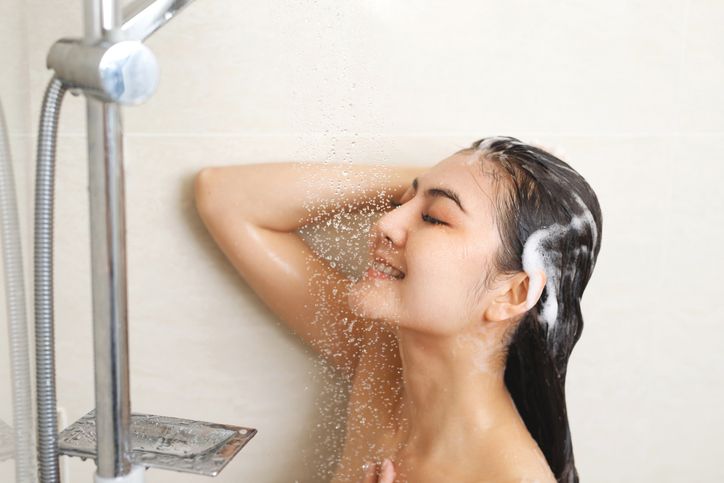
- Home
- Trend
- Weight Loss Strategies
- Acne Tips
- Hair Health Information
- Blemish Removal Tips
- Acne Scar Removal Tips
- Muscle Building Techniques
- Intimate Care Tips
- Postpartum Intimate Care
- Eye Bags Wiki
- Tips for Face Slimming
- Secret of Permanent Hair Removal
- Breast Enlargement Tips
- Cure to Snoring
- Marionette Lines
- Skin-Tightening Secrets
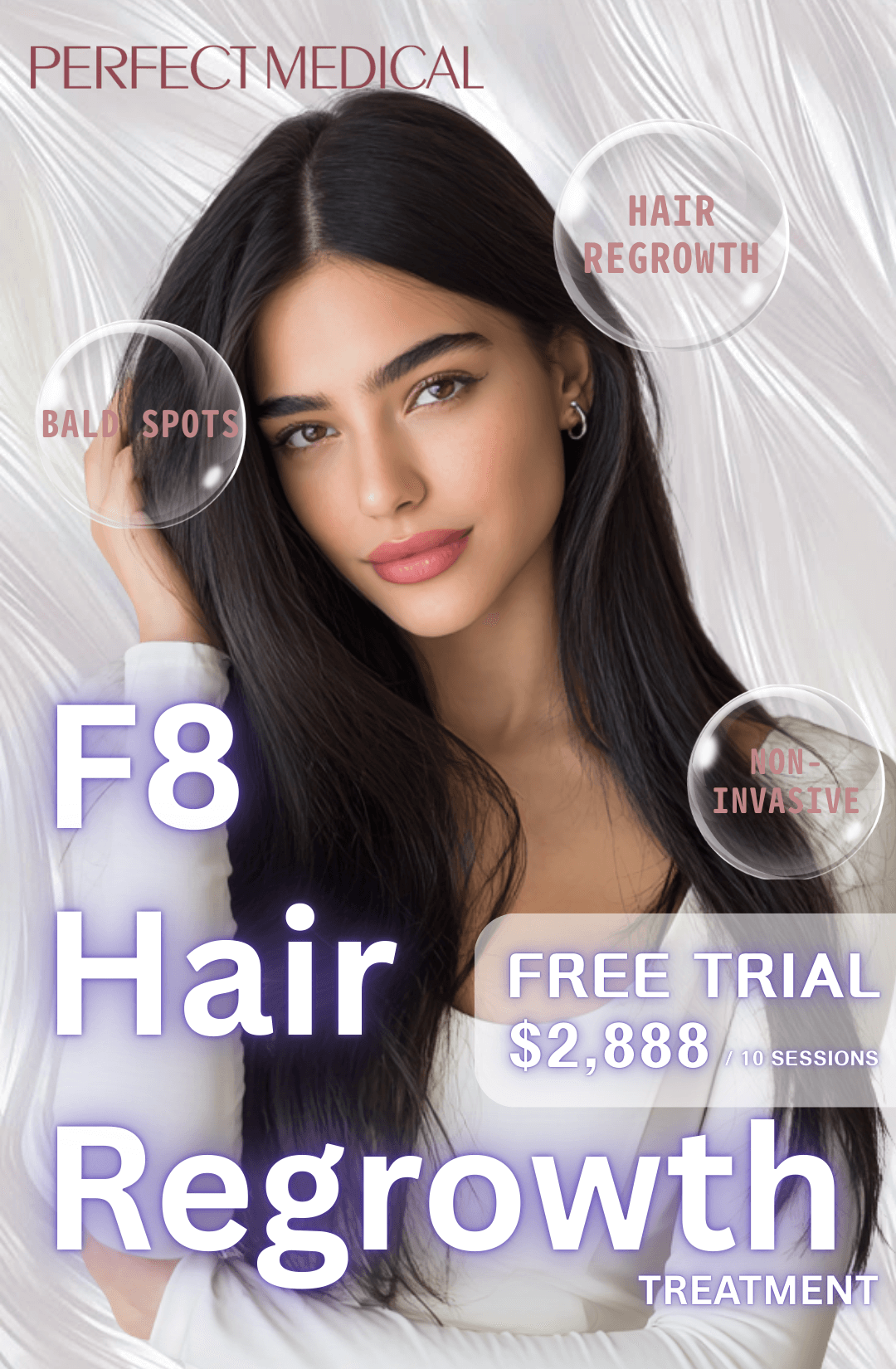
免費體驗
F8 Hair Regrowth Treatment
1 Minute Self-Registration
Date should not be before minimal date
Is thinning hair an early sign of hair loss or even baldness? What triggers this issue? Could it be linked to a receding hairline, male pattern baldness, female pattern baldness, or even seborrheic alopecia? Typically, when hair thins, it’s often accompanied by sparse hair and reduced volume. In this post, we’ll dive into the causes of thinning hair, how to prevent it, and what treatments can help you regain your thick, healthy locks!
1
Causes of Thinning Hair
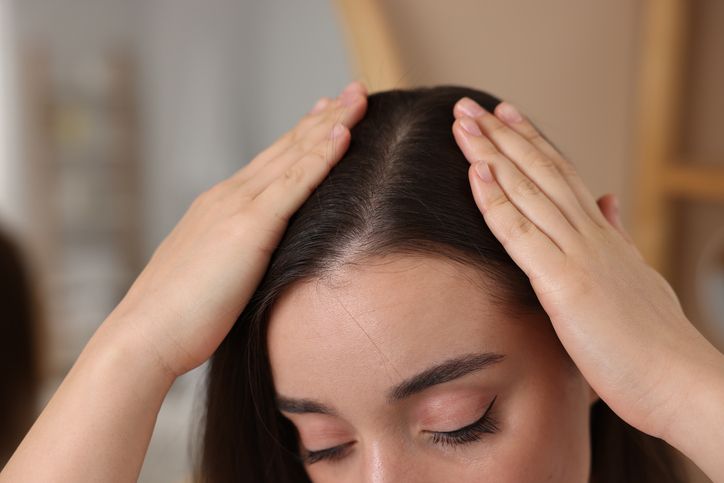
Cause 1: Male Pattern Baldness
Cause 2: Seborrheic Alopecia
Cause 3: Nutritional Deficiency, Dieting, and Eating Habits
Cause 4: Insufficient Blood and Qi, Liver, Spleen, and Kidney Deficiency
Cause 5: Insufficient Melanin Cells, Hair Turning Brown
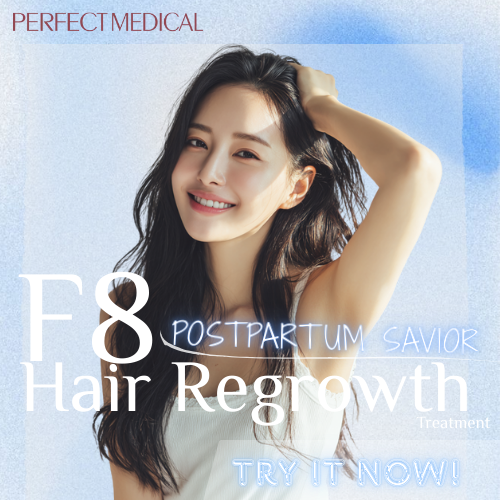
2
Does Thinning Hair Lead to Hair Loss?
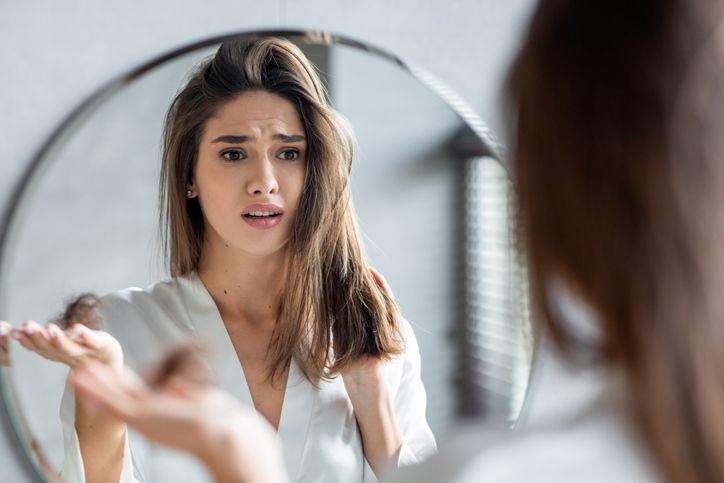
- Pros & Cons Exosome Hair Growth and 4-Step Treatment Process + What to Know Before and After the Procedure
- Thinning Hair in Middle Age: What Happens?
- Forehead Hairline: The Causes Of A Receding Hairline + 4 Treatment Options
- 5 Expert Postpartum Hair Loss Remedies + 3 Hair-Nourishing Recipes You Need to Try!
3
Who is Most Likely to Experience Thinning Hair?
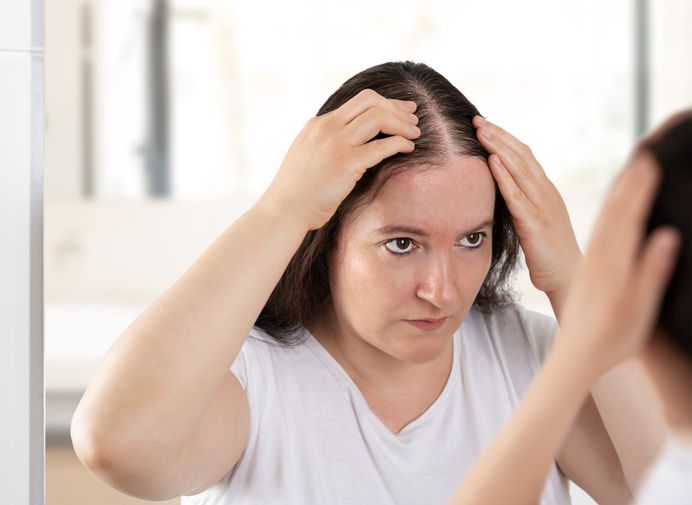
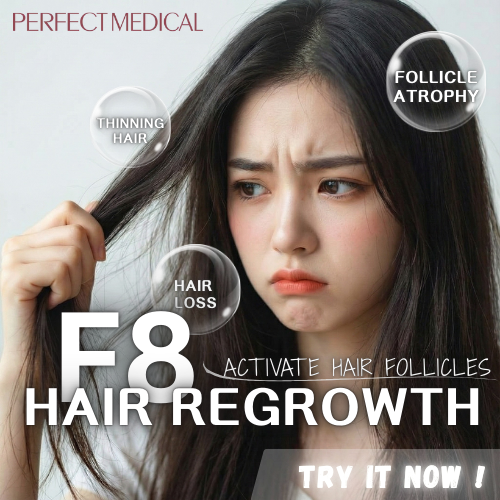
4
Methods to Prevent Hair Thinning
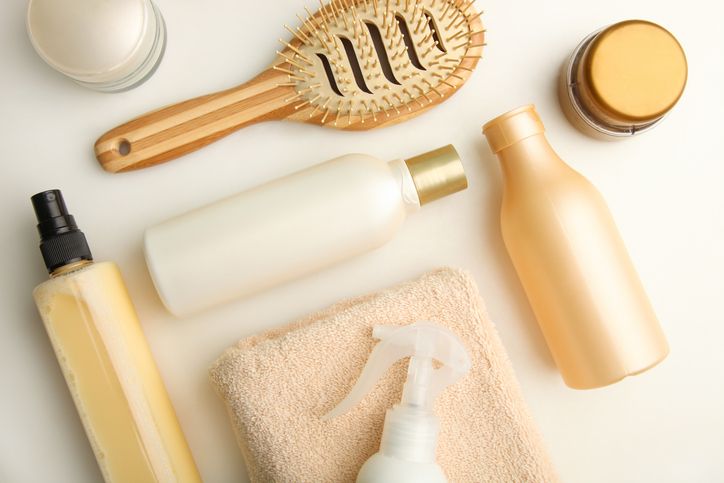
Avoid Using the Same Shampoo for Everyone in the Family
Use Anti-Dandruff Shampoo
Eat Foods Rich in Zinc and Iron
Eat Fewer Carbohydrates
Pay Attention to Hormonal Changes
Adequate Sleep
Moderate Exercise
Balanced Nutrition
Good Hair Care Habits
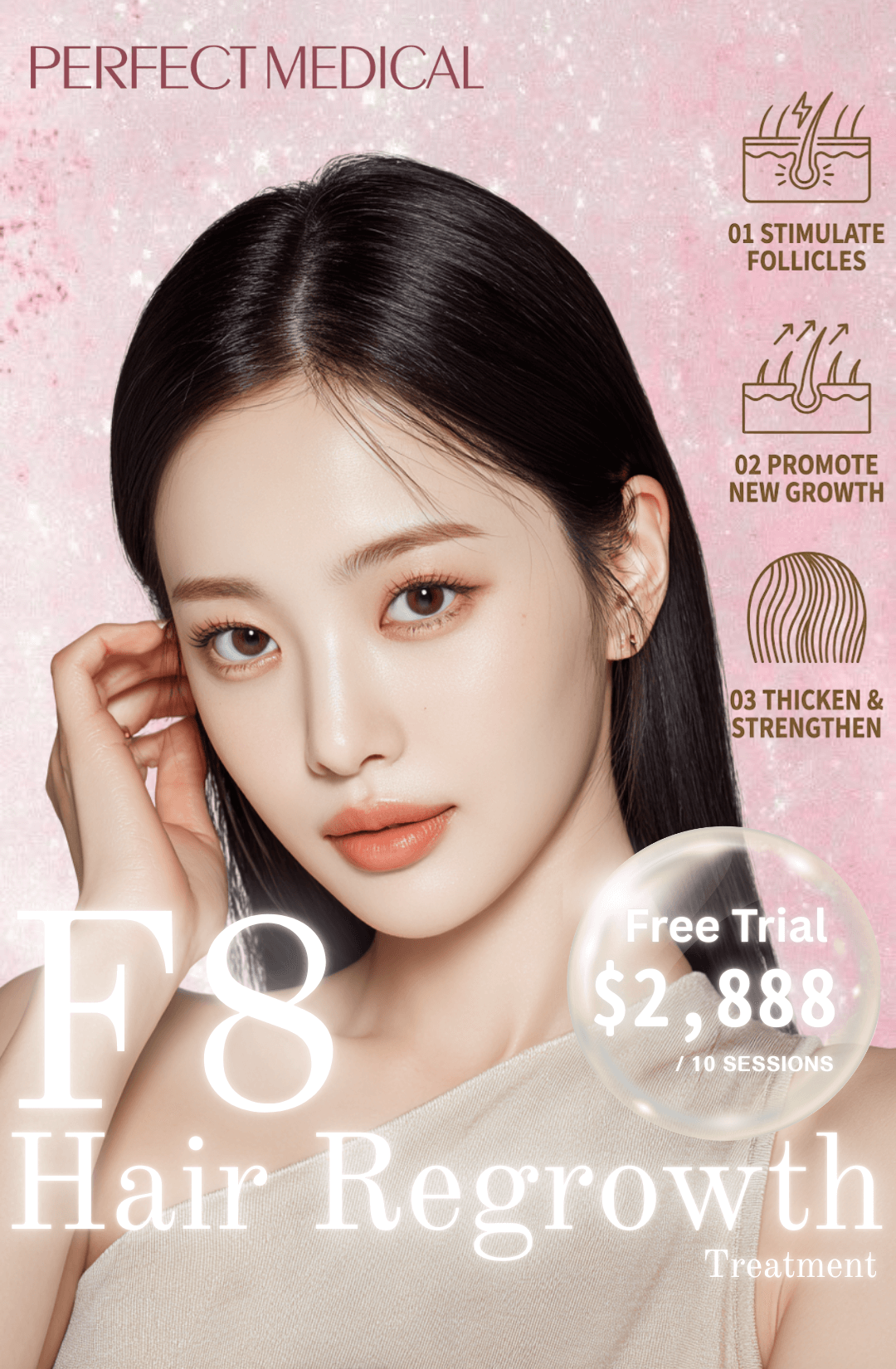
免費體驗
F8 Hair Regrowth Treatment
1 Minute Self-Registration
Date should not be before minimal date
5
How Should People with Thinning Hair Dye Their Hair? Keep a 0.3cm Distance from the Scalp
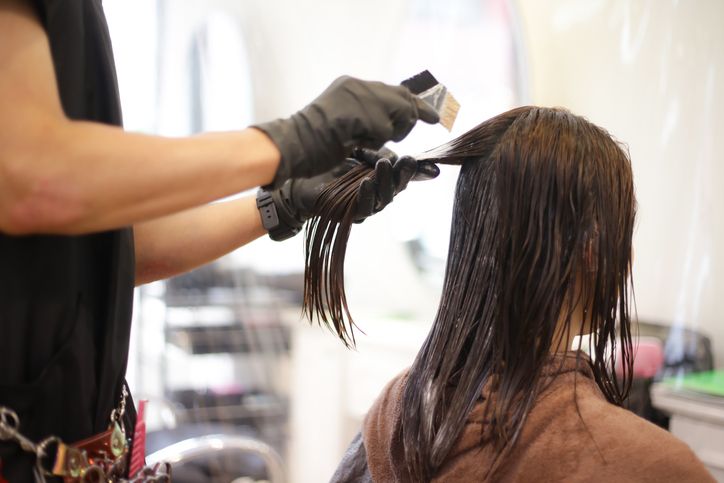
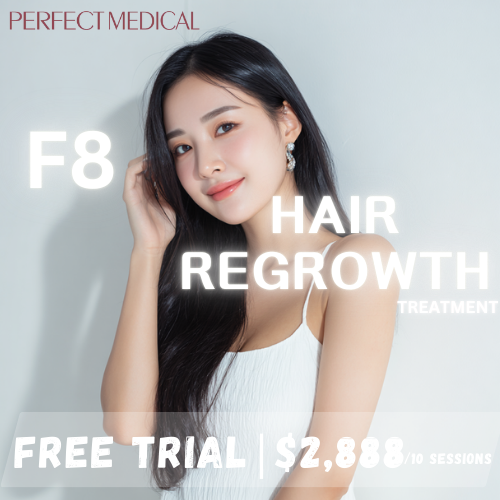
6
3 Traditional Chinese Medicine Methods to Improve Thinning Hair
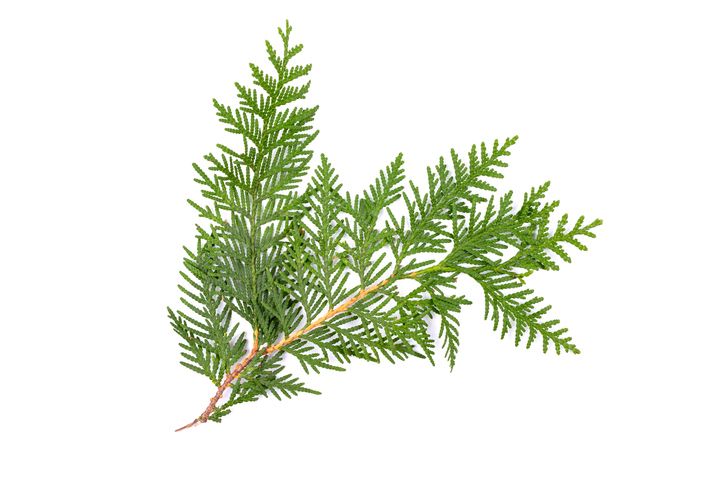
Cypress Leaf Hair Growth Steam
Eat 4 Ounces of Meat Daily
Massage the Baihui Acupoint
- Scalp Care at Home? Master These 4 Steps for Easy Scalp Maintenance
- What to Do About a Visible Hair Part? 5 Causes of Widening Parts + The Complete Fix-It Guide
- Busting Myths About At-Home Hair Regrowth Products + 6 Tips For Choosing Treatment! Which Ones Actually Work?
- Postpartum Hair Loss: Why Your Hair Keeps Falling Out After Giving Birth + 4 Ways To Improve It
7
Revitalize Your Hair with F8 Hair Regrowth Treatment: A Non-Surgical Solution for Outstanding Results
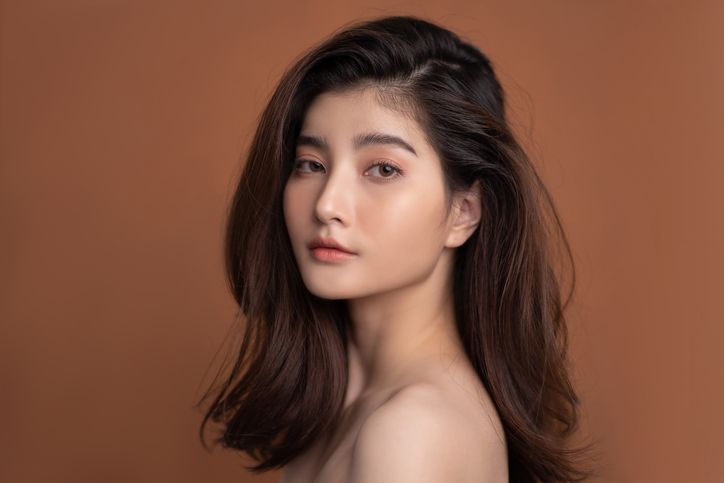
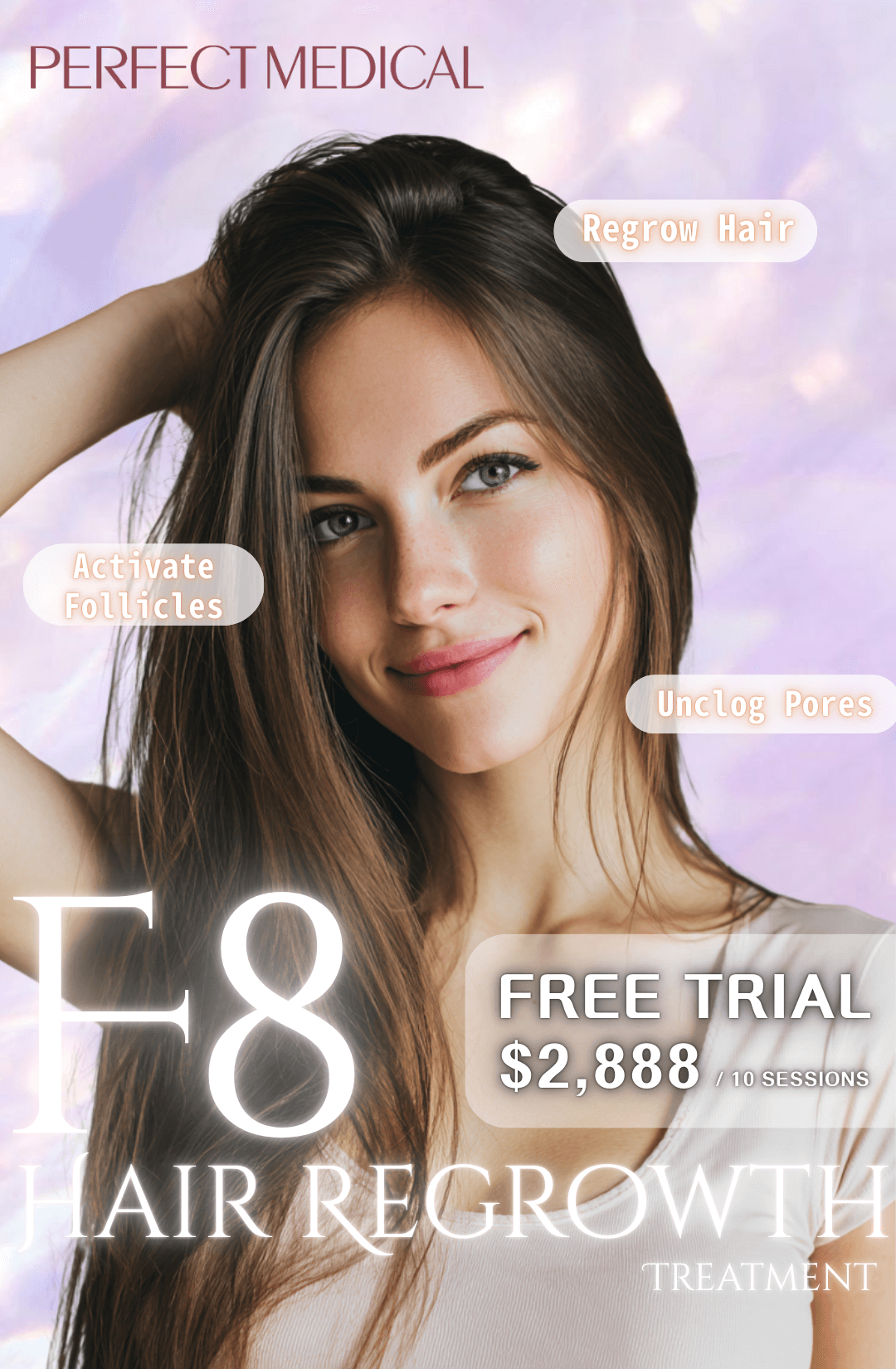
免費體驗
F8 Hair Regrowth Treatment
1 Minute Self-Registration
Date should not be before minimal date
FAQ

What Causes Thinning Hair?
Thinning hair can result from various factors, including genetics and lifestyle, often involving the health of hair follicles. One common cause is androgenetic alopecia, where hormones like DHT damage hair follicles, leading to inflammation and shrinkage. Another cause is seborrheic alopecia, characterized by excess oil production and scalp problems, which make hair fragile and prone to breakage. Nutritional deficiencies also play a role; lacking essential nutrients like protein, zinc, and iron weakens hair and hampers hair growth. In Traditional Chinese Medicine (TCM), thinning hair is often linked to imbalances in the liver, spleen, and kidneys. Additionally, low melanin levels can cause hair to appear dull or gray, further contributing to the perception of thinning hair.
Does Thinning Hair Lead to Hair Loss?
Yes, thinning hair often indicates the onset of hair loss. When hair follicles lose their vitality, new hair grows weaker and is more likely to break. Over time, these damaged follicles may shrink and eventually die, leading to permanent hair loss. Addressing the underlying causes of thinning hair early can help prevent this progression.
How to Prevent Thinning Hair?
To prevent thinning hair, it’s crucial to use a shampoo suited to your scalp type and to adjust your hair care routine for seasonal changes. Anti-dandruff shampoos can help reduce inflammation and protect hair follicles. Additionally, maintaining a diet rich in zinc and iron, while avoiding excessive sugar and high-glycemic carbs, is essential. Monitoring hormonal changes and ensuring adequate sleep are also vital for supporting hair health. Regular exercise and a balanced diet further contribute to preventing hair thinning.
How to Dye Thinning Hair?
When dyeing thinning hair, it’s important to apply the dye at least 0.3 cm from the roots to minimize irritation. Having someone else apply the dye can reduce the risk of improper application and help avoid scalp irritation. This approach ensures that the dye is applied evenly and that your hair and scalp are protected, minimizing irritation to the hair follicles.
What Are Some TCM Treatments for Thinning Hair?
Traditional Chinese Medicine (TCM) offers several treatments for thinning hair. One method involves using cypress leaf steam: soak cypress leaves, double-distilled rice wine, and goosegrass for three months, then apply the mixture to bald spots on the scalp to nourish the hair follicles. Consuming at least 4 ounces of meat daily can also support hair growth. Additionally, massaging the Baihui acupoint on the top of your head can improve circulation and stimulate hair growth.





